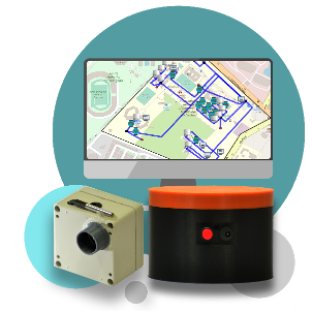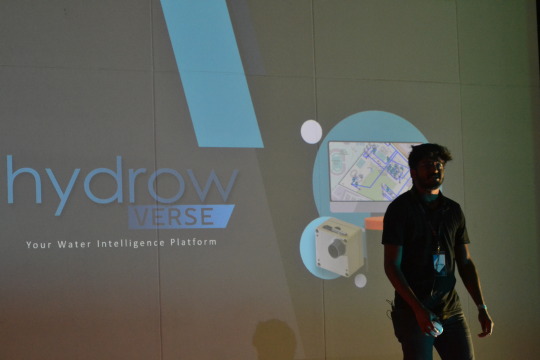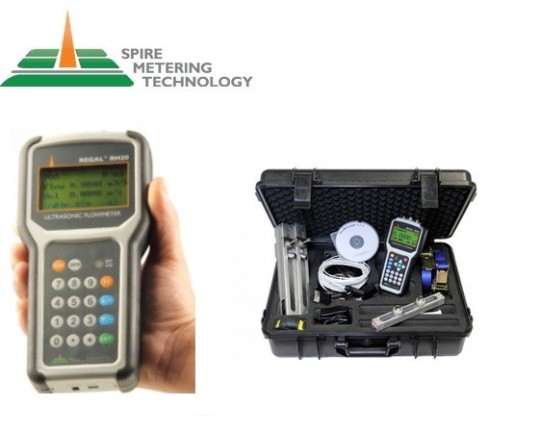#Smart Water Metering
Explore tagged Tumblr posts
Text
0 notes
Note
LaLa : *gives Sketchbook like 2 gallons of blood* Here, take this and don't ask where I got it from :]



"Sketch, is this an appropriate time to–"
"Yes; it's a great time to start running,"
#if anyone has forgotten what happened since the last time i answered one of these asks [dw i wouldn't blame you]#tracey and tony have feuded and . now that sketch n trace have been presented with a gift . sketchy thinks the logical thing to do would –#– be gifting it to the vampyre they live with#can't fault that logic ; he's a little genius#still don't get why they had to place the bucket above the door to tony's room in a “pranking someone by pouring water on them” kind of way#eh . maybe im not smart enough to see their flawless judgement and calculations#:3#dhmis#dhmis art#dhmis au#high voltage au#dhmis sketchbook#dhmis hv sketchbook#dhmis electracey#electracey the meter#dhmis hv electracey#dhmis tony#tony the talking clock#dhmis hv tony#< mentioned#asks#answered asks#my ask box#spooky's postbox#tysm for the ask . im sorry that it took so long for me to get this done 😔😔#tw blood#cw blood
14 notes
·
View notes
Text
About Hydrowverse
HydrowVerse, founded by Thomas David Tency and Dr. Sachin Chaudhari at IIIT Hyderabad, is dedicated to revolutionizing water resource management with innovative, non-intrusive technology. Our research-based startup provides comprehensive water intelligence solutions, focusing on seamless and efficient monitoring of tanks, borewells, water meters, and rivers without direct contact. We empower individuals and organizations with insights to manage water sustainably, inviting you to join our journey towards smarter water management.
Mission
Optimize water infrastructure operations while transforming it into a smarter, more efficient system. Enhance water management education to foster knowledge and innovation.
Vision
Our vision is to establish ourselves as a prominent brand in the field of water intelligence, providing comprehensive and end-to-end solutions for all facets of water management. We are committed to integrating Internet of Things (IoT) and artificial intelligence (AI) technologies to develop innovative monitoring and management tools. Additionally, we will offer educational services that empower stakeholders at all levels to make informed decisions regarding water resources.

HydrowVerse innovates water management with Starr, an IoT-enabled device that accurately estimates water levels in overhead and underground tanks up to 5 meters deep. Starr ensures safety and reliability by avoiding sensor contact with water. Real-time updates help organizations track water levels, prevent overflows, and manage resources effectively. Built-in tank leakage detection enables proactive maintenance to minimize water loss. Starr enhances WaterAid’s water storage and distribution efforts, leading to smarter, data-driven management for a sustainable future. Together, we ensure every drop is measured and conserved.

Our real-time dashboard is meticulously designed to provide a comprehensive overview of water resource management by integrating data from all connected devices into a user-friendly interface. This centralized platform presents key metrics and performance indicators, enabling users to monitor water usage, identify anomalies, and discern trends at a glance.
In addition to real-time data visualization, our dashboard incorporates predictive maintenance tools that analyze historical data to forecast potential issues before they escalate. This proactive approach facilitates timely interventions, minimizing downtime and associated maintenance costs.
Furthermore, the dashboard encompasses water pressure estimation capabilities, offering critical insights into system performance and ensuring optimal water distribution.
Collectively, these features empower users to make informed decisions, optimize operational efficiency, and safeguard the integrity of their water infrastructure.
Our solutions are easily adopted, seamlessly integrating with organizations of all sizes. They’re cost-effective, reducing water loss and operational costs. Real-time updates allow users to monitor water resources and address issues promptly. Our technology is scalable, growing with your needs and maintaining optimal efficiency as your infrastructure expands.
#smart meters#water tech#hydrowverse#Thomas David tency#Retrofit#Non intrusive tech#analog water meters#AI#ML#Water intelligence#leakage detection#Water Monitoring
2 notes
·
View notes
Text
The Future of Water Conservation: Understanding Smart Water Meters
Water is a precious resource, and we need to use it wisely. Smart water meters are a new way to help us manage water better. These devices use technology to track water usage and give real-time updates, making it easier to save water.

What Are Smart Water Meters?
A smart water meter is a digital device that measures how much water you use. Unlike old water meters, these devices send data automatically to your phone or to the water company. This means you can see your water usage instantly and fix problems like leaks quickly.
Why Use Smart Water Meters?
Fair Billing Smart water meters make sure you only pay for the water you use. They provide accurate readings, so there’s no confusion about your bill.
Leak Alerts If you have a leak, a smart meter will let you know. This helps you fix the problem faster and saves water.
Real-Time Updates With IoT monitoring, these meters let you check your water use at any time. This helps you manage your water better.
Environment-Friendly Smart water meters encourage people to use less water, supporting smart water management and protecting the environment.
How Do They Work?
Smart water meters have sensors to measure water flow. They send this data through wireless networks to your phone or computer. You can see your water usage and even get alerts if there’s a problem.
Where Are Smart Water Meters Used?
Homes Families can track daily water use and avoid wasting water.
Businesses Companies can save money and water by managing their usage more efficiently.
Farms Farmers can use smart water meters with smart irrigation systems using IoT to water crops only when needed, saving water and money.
Helping with Smart Water Management
Smart water meters are a key part of smart water management. They provide data that helps water companies distribute water better and fix issues faster. Cities and towns are using these systems to solve water shortages and improve water services.
Challenges of Using Smart Water Meters
Even though smart water meters are helpful, there are some issues:
High Cost: Installing smart meters can be expensive.
Data Security: Protecting the data these meters collect is important.
Adapting to Change: Some people prefer old meters and may not want to switch.
The Future of Smart Water Meters
As technology improves, smart water meters will get better and easier to use. They will work well with systems like smart irrigation systems using IoT, making them even more useful. This will help create a future where water is managed more efficiently.
Conclusion
Smart water meters are an easy way to manage water better. They give you real-time information, help you save money, and protect the environment. When combined with tools like IoT monitoring and smart water management, they make saving water simple. It’s time to adopt these smart solutions and take care of our water resources.
0 notes
Text
https://logcla.com/blogs/403088/Smart-Water-Metering-Market-Poised-to-Register-Notable-Growth-by
#Smart Water Metering Market Trend#Smart Water Metering Market Size#Smart Water Metering Market Information#Smart Water Metering Market Analysis#Smart Water Metering Market Demand
0 notes
Text
TENDER FOR SUPPLY, DELIVERY AND INSTALLATION OF 2031 NO. SMART WATER METERS
THIKA WATER AND SEWERAGE COMPANY LTD TENDER JULY 2024 TENDER NOTICE Thika Water and Sewerage Company Ltd is implementing the Conditional Liquidity Support Grant (CLSG) II Programme supported by the World Bank through Water Sector Trust Fund. The Programme is aimed at supporting financial recovery of WSPs to pre-COVID levels or better. Thika Water and Sewerage Company Ltd now invites tenders from…
#DELIVERY AND INSTALLATION OF 2031 NO. SMART WATER METERS#TENDER FOR SUPPLY#THIKA WATER AND SEWERAGE COMPANY LTD TENDER JULY 2024
0 notes
Text
The global Smart Meter Market is expected to grow from an estimated USD 23.1 billion in 2023 to USD 36.3 billion by 2028, at a CAGR of 9.4% according to a new report by MarketsandMarkets™.
#smart meters#smart grid#smart metering#smart home#smart home devices#smart meter market#smart meter#smart electric meter#smart electricity meter#smart energy#smart energy meter#smart gas meter#smart grids#energy#energia#power generation#power#utilities#utility#electricity#renewable power#renewableenergy#smart technology#smart water meter#electrical grid#power grid
0 notes
Text
Explore the essential role of smart water meter in India: key use cases, benefits, and how they revolutionize water management. Read on for key insights.
0 notes
Text
0 notes
Text
The global Smart Water Meters Market is anticipated to grow from estimated USD 4.61 billion in 2024 to USD 9.04 billion by 2030, at a CAGR of 11.9% during the forecast period. The rising urban population is creating opportunities for the development of smart cities, which ultimately is driving the demand for smart water metering infrastructure development on a larger scale.
#Smart Water Meters Market#Smart Water Meters#Smart Water Meters Industry#Smart Water Meters Market Size#Smart Water Meters Market Share#non-revenue water reduction#water scarcity#smart meters
0 notes
Text
SpireMT - Find Future ready Portable Flow Meters for Industrial Applications
For different industrial applications, a variety of ultrasonic flow meters are required to keep the flow well-maintained and into a consistent speed. Portable flow meters are the vital type of meters that come with an excellent accuracy and long range of flow handling functionality features. Wall Mounted ultrasonic flower meters are the most vital portable flow meters that are providing you a…

View On WordPress
#industrial water meters#portable flow meters#smart energy meter#spire metering technology#Ultrasonic flow meters
0 notes
Text
Smart Water Meter Market Analysis of Ffuture Perspectives (2024 – 2028)
IMARC Group, a leading market research company, has recently released a report titled “Smart Water Meter Market: Global Industry Trends, Share, Size, Growth, Opportunity and Forecast 2024-2032”. The study provides a detailed analysis of the industry, including the smart water meter market trends, share, size and growth forecast. The report also includes competitor and regional analysis and…

View On WordPress
#Smart Water Meter Market#Smart Water Meter Market Demand#Smart Water Meter Market Report#Smart Water Meter Market Share
0 notes
Text
Harnessing Technology for Smart Water Management System Innovations
The implementation of a smart water management system is crucial for industries that rely heavily on water for their processes. By employing such a system, factories can monitor water consumption, treat and recycle wastewater more efficiently, and reduce overall water footprint. A smart water management system not only helps in conserving this vital resource but also ensures compliance with environmental regulations. This system can identify potential contamination sources, enabling timely corrective actions to prevent environmental damage.
0 notes
Text
IoT Monitoring: Revolutionizing Water Management for a Sustainable Future
Water is one of our planet’s most vital resources, and its management has become increasingly critical as global demand continues to rise. IoT monitoring is emerging as a powerful solution, offering innovative ways to conserve, optimize, and distribute water effectively. By integrating real-time data and smart technologies, IoT monitoring is transforming water management across various sectors.

What is IoT Monitoring?
IoT monitoring involves using connected devices equipped with sensors to collect and transmit real-time data. In water management, IoT systems monitor key parameters like water levels, quality, flow rates, and consumption patterns. This data is then analyzed to enable efficient decision-making, resource optimization, and predictive maintenance.
The Importance of IoT Monitoring in Water Management
1. Real-Time Insights
IoT monitoring provides instant updates on water systems, offering actionable insights. For example, utilities can track water distribution networks to detect anomalies and ensure smooth operations.
2. Leak Detection and Prevention
By identifying leaks and pressure drops in real time, IoT sensors minimize water loss and reduce repair costs. Early detection prevents significant infrastructure damage.
3. Optimized Usage in Agriculture
Smart irrigation systems using IoT tailor water delivery based on soil moisture, weather conditions, and crop requirements. This minimizes wastage and improves agricultural productivity.
4. Water Quality Assurance
IoT devices monitor critical quality indicators like pH, turbidity, and contamination levels. Ensuring water safety becomes simpler and more reliable with such systems.
5. Cost Efficiency
By streamlining operations and reducing wastage, IoT monitoring lowers costs for municipalities, industries, and individuals.
Applications of IoT Monitoring in Water Management
1. Smart Water Meters
Smart water meters track household and industrial water usage in real time. Users can monitor consumption through apps, helping them adopt water-saving habits. Utilities also benefit by detecting leaks and preventing revenue losses.
2. Agriculture and Smart Irrigation
IoT monitoring is pivotal in modern agriculture. Smart irrigation systems using IoT analyze soil and environmental conditions to deliver precise water amounts.

This approach conserves water and boosts crop health, reducing operational costs for farmers.
3. Urban Water Networks
Cities are using IoT monitoring to manage their water supply systems more effectively. Sensors placed across the network collect data on flow rates, pressure, and quality. The information helps utilities predict demand, allocate resources, and address issues proactively.
4. Industrial Water Management
Industries rely on IoT monitoring to optimize water usage in production. Sensors track consumption, recycling, and wastewater management, enabling industries to meet sustainability goals and regulatory requirements.
Enhancing Efficiency with Smart Water Management
Smart water management combines IoT monitoring with advanced analytics to tackle challenges like scarcity, contamination, and inefficiency. By automating processes and leveraging data-driven insights, smart water management ensures sustainable and equitable distribution.
For instance, municipal systems can integrate IoT-powered smart water meters to monitor consumption patterns, identify high-usage areas, and implement conservation strategies. Similarly, industries can optimize their water-intensive operations, reducing waste and lowering environmental impact.
The Role of IoT Device Management
Efficient IoT device management is critical for the success of monitoring systems. This involves:

Regular Updates: Keeping device software current for optimal performance.
Maintenance and Repairs: Ensuring quick resolution of issues to prevent downtime.
System Integration: Connecting devices seamlessly with existing infrastructure.
Scalability: Enabling the addition of more devices as system needs grow.
By maintaining IoT devices properly, organizations can maximize their investment and ensure long-term reliability.
Future Innovations in IoT Monitoring
The future of IoT monitoring for water management looks promising, with emerging technologies set to enhance its capabilities:
Artificial Intelligence and Machine Learning: Predictive analytics powered by AI will allow systems to anticipate demand, detect potential issues, and recommend solutions.
Advanced IoT Gateways: Enhanced gateways will improve data processing and connectivity, making monitoring systems more robust and efficient.
Energy-Efficient Solutions: Solar-powered IoT devices will make monitoring systems more sustainable, especially in remote areas.
Scalable Solutions: Affordable and scalable IoT systems will increase adoption in developing regions, addressing global water challenges.
Conclusion
IoT monitoring is revolutionizing the way we manage water resources. From smart water meters to IoT-powered irrigation systems, these technologies provide the tools we need to conserve water and use it more efficiently. Coupled with smart water management practices and effective IoT device management, these solutions pave the way for a sustainable future. Investing in IoT monitoring today ensures that water remains a resource we can rely on for generations to come.
0 notes
Text
The Smart Water Meter Market is anticipated to gain exponential industry growth over the given forecast period of 2023-2026, with ##0 in 2018, indexing a CAGR of $$0 by the end of the aforementioned timeline.
0 notes